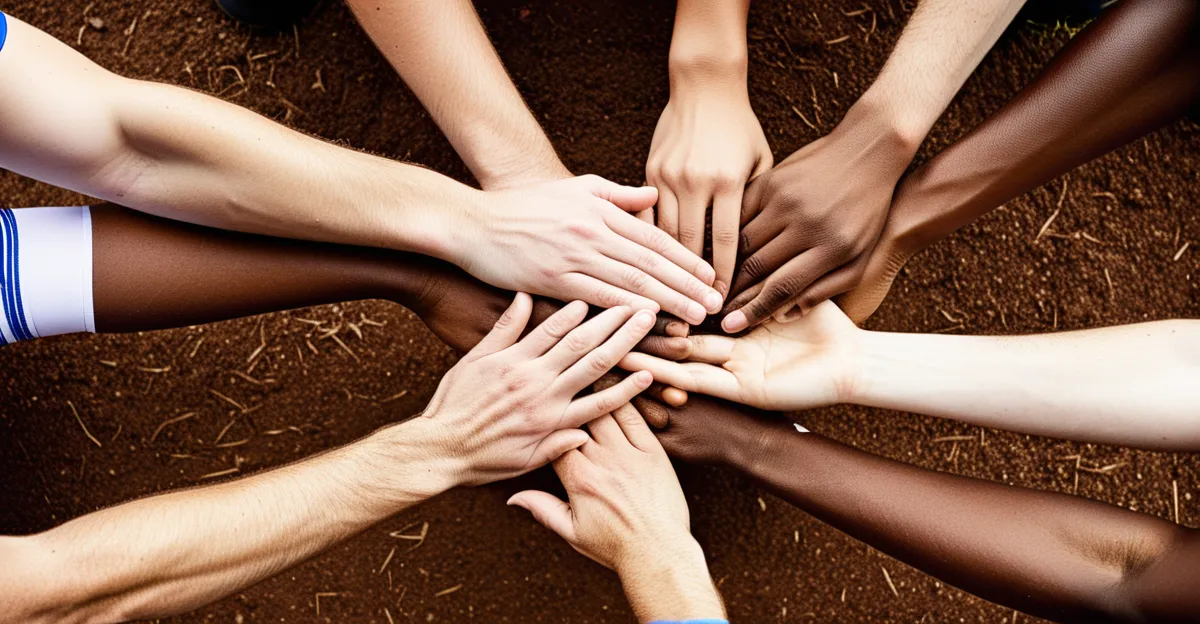The Role of Sports in Shaping UK National Identity
Sports have played a central role in cultivating British identity. Historically, UK sports such as cricket, rugby, and football laid the groundwork for a collective sense of belonging. These sports became more than games; they evolved into symbols of British character and resilience. Major events like the Olympics and the FIFA World Cup act as significant catalysts for national pride. When the UK hosts or competes in these global tournaments, feelings of unity and national spirit intensify, strengthening the perception of a shared British identity.
Iconic British athletes contribute uniquely to this cultural self-image. Figures like Sir Roger Bannister or Jessica Ennis-Hill inspire generations, representing excellence and dedication. Their successes on the world stage not only elevate UK sports but also foster a narrative of perseverance and achievement linked to British identity. This connection resonates deeply within communities, reinforcing how sports serve as a mirror reflecting the nation’s values and aspirations. Through this ongoing relationship, UK sports remain a powerful driver of national pride and identity formation.
Have you seen this : What Makes UK Sports So Unique Compared to Others?
Sports as a Unifying Force Across Regions
Sports serve as a powerful catalyst for unity through sports, especially in a socially and culturally diverse UK. Major sporting events like the Olympics and World Cup become moments when communities across England, Scotland, Wales, and Northern Ireland come together, momentarily setting aside regional or ethnic differences to celebrate shared achievements. This collective passion promotes community cohesion UK-wide, fostering solidarity beyond everyday divisions.
Examples abound of UK sports bridging divides. Football clubs with supporters from varying ethnic and social backgrounds often become focal points for inclusion, helping to dissolve class barriers and cultural separations. Likewise, grassroots initiatives use sports as a tool to unite youths from different regions, facilitating social integration and reducing community tensions.
Also to discover : How Can UK Sports Evolve to Attract Younger Audiences?
Moreover, social projects harnessing UK sports deliberately target inclusion, encouraging participation in physical activity and creating safe spaces for dialogue among diverse groups. These efforts demonstrate that beyond entertainment, sports function as an essential platform for promoting unity through sports and strengthening local as well as national cohesion. The enthusiasm generated around UK sports events provides a shared experience, essential for knitting together the UK’s regional diversity into a more cohesive whole.
The Dual Role of Sports: Highlighting and Overcoming Regional Differences
Sports in the UK vividly reflect regional identity UK sports, with local teams deeply rooted in their communities’ histories and cultures. Rivalries between these teams often express distinctive local pride, such as those between Scottish and English football clubs or Welsh rugby unions. While these rivalries can accentuate local identity, they also contribute to a broader sports culture that unifies the nation through shared passion.
Case studies reveal that despite fierce competition, these rivalries encourage both regional identity UK sports and cultural integration. For example, matches between regional teams generate excitement that extends beyond borders, drawing national audiences and fostering respect for diverse local identities within the UK.
Moreover, sports actively bridge regional differences by creating common experiences. Community events and collaborative tournaments bring together fans and players from various regions, promoting understanding and cohesion. Thus, while highlighting distinct identities, UK sports simultaneously nurture inclusivity and shared belonging, making them vital tools for cultural integration and a stronger national fabric.
Societal Impact: Economic, Social, and Cultural Effects
The societal impact of sports in the UK extends far beyond the playing field, contributing significantly to the nation’s economy and social fabric. The sport economics UK sector generates billions annually, supporting jobs from grassroots coaching to elite sports management. Major events like the Olympics not only boost tourism but create lasting infrastructure improvements, providing long-term economic benefits to host cities.
Beyond economics, UK sports serve as vital avenues for social mobility. Participation can open doors to education and career opportunities, particularly for disadvantaged youths. Programs targeting inclusion help break down social barriers, fostering diverse talent pools and enhancing community engagement.
Culturally, sports embed themselves into national traditions and collective rituals. Annual events such as the FA Cup or Six Nations Championship strengthen shared experiences that resonate across generations. These cultural celebrations reinforce national pride and a sense of belonging, solidifying how sports shape the UK’s social identity.
In this way, the cultural impact sports have is profound, intertwining economic benefits with social upliftment and cultural cohesion, making sports indispensable to British society.
Insights from Experts and Public Opinion
Experts consistently highlight the significant role of UK sports in shaping national identity and social cohesion. Academic studies emphasize how sports act as a platform for expressing cultural values while fostering a sense of belonging across diverse communities. For instance, researchers note that iconic events like the Olympics amplify national pride and collective remembrance, reinforcing British identity in both urban and rural areas.
Surveys on public perception sports UK reveal widespread agreement that sports contribute positively to unity through sports, with many respondents viewing major tournaments as key moments for bridging social divides. However, some acknowledge regional rivalries can sometimes intensify divisions, underscoring the complex dual role of sports culture.
Social impact case studies illustrate practical outcomes from community sports initiatives that promote inclusion and social mobility. These projects often receive strong support from local populations, enhancing community cohesion UK-wide. Such evidence reflects expert opinion UK sports that sports not only entertain but serve as vital social instruments with lasting influence. Overall, the combined academic and public perspectives affirm sports’ powerful capacity to unify and reflect the UK’s multifaceted identity.











